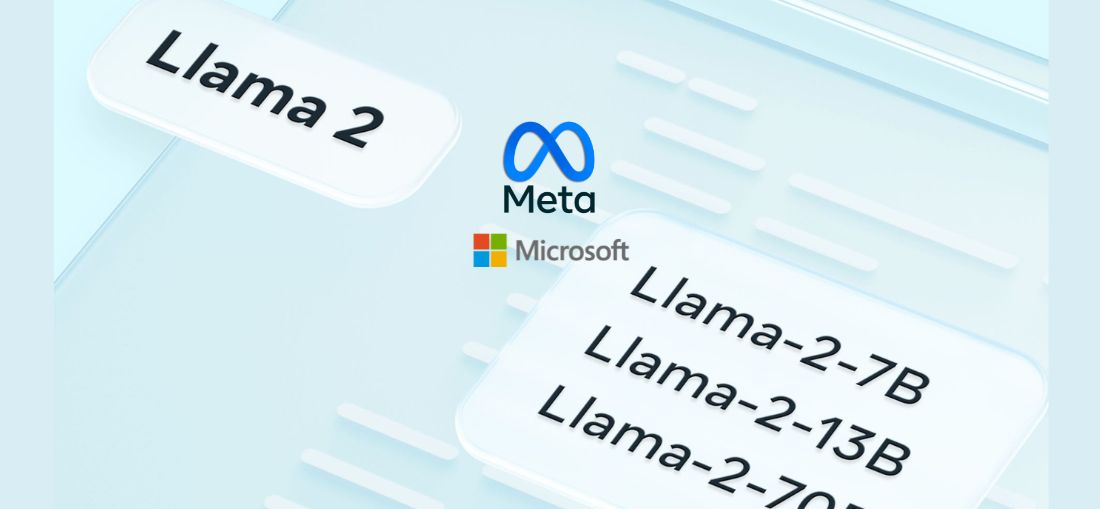Meta has announced it will be expanding its longstanding partnership, with Microsoft as the preferred partner for Llama 2.
Meta has stated that given the recent breakthroughs in AI, particularly generative AI, have captured public attention, showcasing the potential to create incredible opportunities economically and socially. Emphasising an open approach, developers are making AI models available to benefit everyone, allowing businesses, startups, researchers, and entrepreneurs access to tools they wouldn’t be able to build on their own.
An open approach is also deemed safer, as it enables stress-testing AI models by a community of developers and researchers, identifying and solving issues collaboratively. By observing how others use these tools, teams can learn, improve them, and address vulnerabilities.
What is Llama 2?
Large language models (or LLMs) have been at the centre of the AI media hype cycle since ChatGPT’s inception in November 2022. There are two types of large language models: proprietary and open-source. Along with BERT & LaMDA by Google, Llama 2 is open-source. Open-source LLMs benefit from a large community of developers and greater versatility in usage.
For over a decade, Meta has prioritised exploratory research, open-source initiatives, and collaboration with academic and industry partners in AI efforts. Many large language models have been released, fueling progress and being utilised by businesses in generative AI experiences.
The demand for Llama 1, a large language model, has been overwhelming, leading to the decision to open-source Llama 2, offering it for free in research and commercial applications. Microsoft is now the preferred technology partner for Llama 2, and it is available in Azure AI model catalogue and optimised for Windows.
The partnership between Microsoft and Meta supports an open approach to democratising access to foundational AI technologies, with diverse supporters globally backing this endeavor. However, the open-source approach also acknowledges the responsibility of ensuring safety and transparency. To address this, Meta has undergone red-teaming exercises, provided a transparency schematic, created a responsible use guide, and implemented an acceptable use policy. They also seek feedback through the Open Innovation AI Research Community and the Llama Impact Challenge, encouraging innovators to use Llama 2 for addressing societal challenges.
Why does this matter?
Meta’s history of open-source innovation, as seen with React and PyTorch, further reinforces its belief that openly sharing large language models like Llama 2 will contribute to safer and more beneficial generative AI development.
Overall, Meta’s move to open-source Llama 2 represents a significant step in fostering inclusive AI development, empowering developers, researchers, and businesses to utilise generative AI technology for various purposes, while responsibly addressing safety concerns and seeking feedback from amongst the wider tech-community.
cover image courtesy of Meta
Author spike.digital